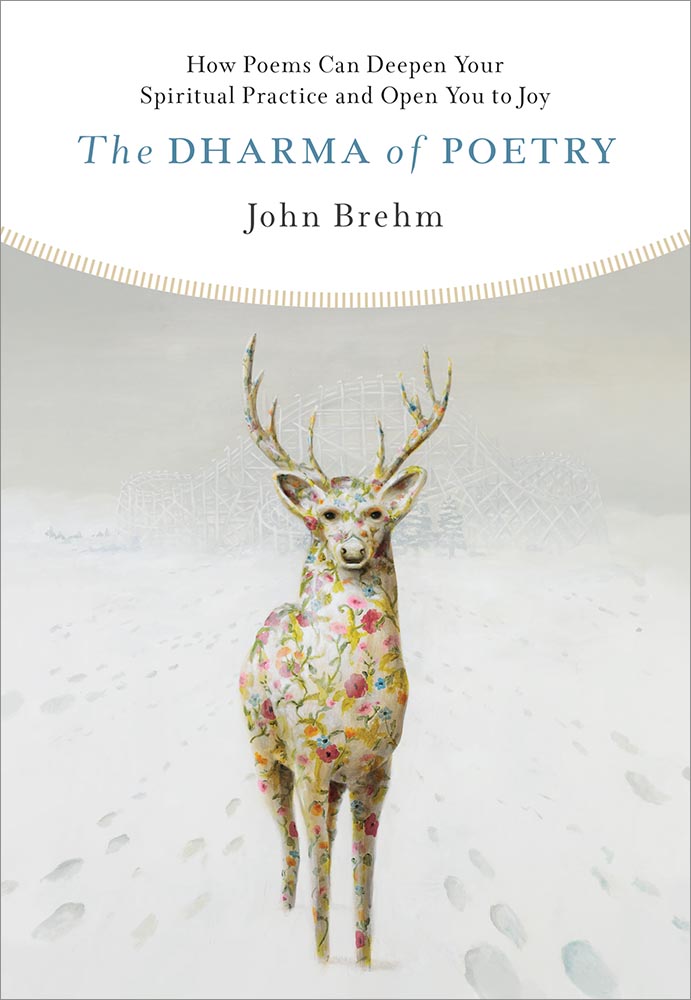The Dharma of Poetry
2021

Please purchase from your local bookseller
The Dharma of Poetry
2021
“A wonderfully encouraging book. There is a beautiful alchemy in the way Brehm turns poems into practice. He shows us the ways poems are by their nature moments of liberating attentiveness. And in his clear and welcoming voice, Brehm reveals how that liberation can infuse our everyday lives. How it can transform not just us, but also this world in ecological crisis.”
—David Hinton, author of China Root and Hunger Mountain
This is a book about poetry as a source of wisdom. It argues not that poems are or should be didactic or prophetic—or that poets be regarded as sages making grand pronouncements about the meaning of life—but that poems embody and implicitly endorse ways of being in the world that anyone engaged in spiritual practice, or anyone wanting to live a more mindful life, might want to emulate.
Here’s an example of what I mean, a haiku by the great Japanese poet, Kobyashi Issa (1763-1828), translated by Robert Hass.
I’m going to roll over
so please move
cricket.
The poem, like many of Issa’s, is charming in its simplicity, its childlike innocence. Didn’t we all once talk to animals, large and small? The poem is nothing more, but also nothing less, than a gentle warning and request spoken by a person to a cricket. The poet is not telling us how to live, or arguing for the virtue of non-harming. Instead Issa demonstrates an attitude toward life and a way of behaving whose ethical dimension is plain to see. Even insects deserve our respect, the poem seems to say, deserve to live out their lives and not be harmed simply for being in our way. It’s important also to note that the poem is not addressed to us but to the cricket. And what is the significance of that? What are we to make of a man speaking to an insect? It suggests a friendliness and care that Issa extends to all beings, even the most “lowly” among us. Indeed, the poem may be seen as a subtle subversion of the hierarchy which humans impose, always to our own benefit, on the world around us. It implies that we are not separate from or more important than the creatures with whom we share this life, that we can and should address them as equals, and that we be mindful of their well being as we move through the world.
All this in just three lines, and without ever making a direct assertion about how one should live. Such is the power of poetry.
–from the Introduction